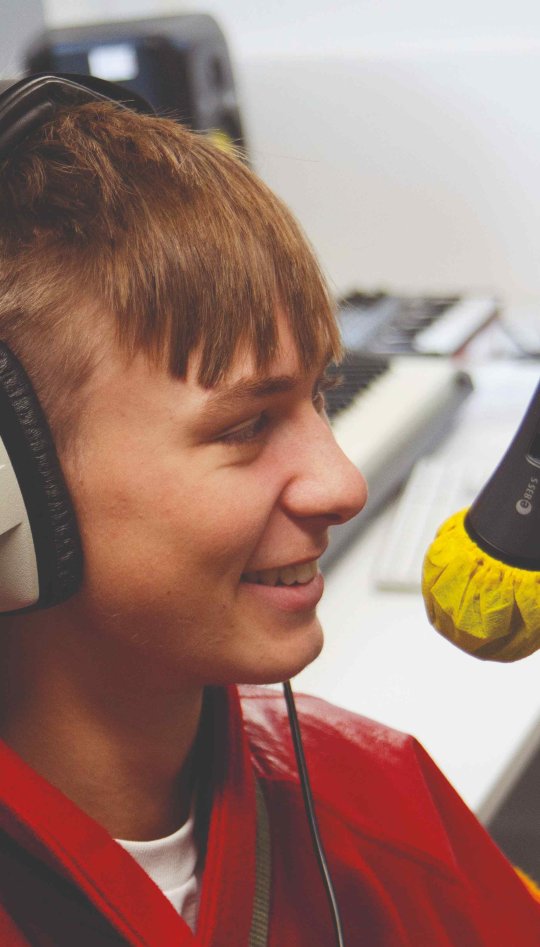

Media Production BA(Hons)
Become an original multimedia storyteller.
Course overview
Our content-hungry world needs technically skilled storytellers who can work across multiple channels and formats - from documentary and podcasting, to broadcast news, social media and emerging digital platforms.
An exciting fusion of advertising, journalism and multimedia production, this hands-on Media Production degree will equip you with a solid set of technical production tools and the professional flair to turn your creative vision into compelling content that resonates with global audiences.
Working in professional-standard facilities, you’ll collaborate with peers on industry-aligned briefs to develop your multimedia storytelling and ability to express original ideas for news content, adverts and non-fiction film or audio.
By the time you graduate you’ll have built an industry-ready portfolio, showcasing core technical, creative and professional skills. With optional modules in games, screenwriting and documentary production, this course gives you the skills and flexibility to make, edit and produce standout content.
You will:
- Develop in-demand content making, editing and curating skills vital to the media and creative industries.
- Learn to leverage digital technologies to experiment with deep emotional storytelling.
- Mater the art of pitching, planning and delivering content to industry-aligned briefs.
- Work in professional-standard facilities across the School of Communication and the School of Film & Television, including specialist film and editing facilities, photography and video studios, post-production labs, newsrooms and broadcast studio.
- Grow your understanding of audiences, market traction and the wider cultural, social and political implications of the global media industries.
Course details
On this Media Production degree, you'll have the opportunity to gain a BA(Hons) degree over three years or the option to study BA(Hons) Media Production with Integrated Foundation Year and/or professional placement study options.
You'll gain the practical skills and strategic understanding to deliver impactful multimedia content that tells important stories or promotes products or causes. You'll learn to work to industry health and safety, editorial, and diversity guidelines and to deal professionally and sensitively with your contributors. With a practice-based approach to learning, and supported by the university’s Employability team, the course will also help you develop transferrable project management and team-working skills, giving you a commercial edge when you graduate.
You’ll start developing the skills you’ll need to succeed from the very beginning, as you immerse yourself in the contexts and practices of media production and the broader creative industries. You’ll make your own short film and audio package, learn the essential attributes of a news reporter and gain key writing and study skills.
Modules
News Lab: Multimedia Reporting
In the first module on our News Lab series, you will learn the fundamentals of reporting, news writing and how to record and edit audio stories.
You’ll be supported to investigate and interrogate digital and real-world news sources to generate good story ideas and learn how to interview people with confidence.
Discovery
You’ll discover the heart of storytelling through filmmaking. Learning fundamental production skills, you’ll look at how we might express original ideas visually and audibly. The module helps you develop your sense of self-awareness and personal responsibility – including through exploration of the ethics of inclusion, and of essential health and safety.
Writing Studio
This module is all about understanding the mechanics of impactful writing. Collaborating with students from across the School of Communication, you will examine how language shapes the experiences of audiences across different platforms.
Then, through practical tasks and workshops, you will develop tools and techniques that will build your confidence in writing with clarity, empathy, and purpose, helping you to craft engaging and persuasive stories for a wide range of different channels and contexts – from news and social media to websites and apps.
Adland
The evolution and development of advertising is significant to aspiring creative advertising practitioners; you’ll explore its historical roots to its fast-paced digital evolution.
Through a series of lectures, you will be immersed in the development of the industry throughout the 20th and 21st centuries, exploring the major concepts, people and campaigns that have shaped today's adland.
Represent
In this module you’ll learn how to develop your ideas, find stories and characters, and decide what creative storytelling you’ll use to form a documentary. You’ll work within industry health and safety, editorial and diversity guidelines to deal sensitively with your contributors and produce a quality piece of documentary work.
Everyday Media & Digital Prototyping
You will explore how digital media shape everyday life and, through qualitative user research and hands-on prototyping, learn to transform insights into creative design concepts.
Using lo-fidelity and digital design tools you will create practical outcomes which may include an app, website concept or interactive sketch addressing media use during disruption.
The second year enables you to build on the learning and creative confidence established in year one to develop your skills and thinking, while engaging in more complex outputs and working contexts, with a particular focus on collaborative practice.
Modules
Digital News Lab: Local is Global
Develop your multimedia storytelling skills by exploring stories connected across borders.
You will focus your work - individually and collaboratively - around a theme with both local and global resonance, considering journalism’s role in promoting social justice and challenging Eurocentric assumptions about news cultures. You will also learn how to use digital content management systems to present your work.
Media Law & Ethics
This module introduces you to the freedoms and constraints faced by content producers.
Using current and historical case studies, you'll develop a working knowledge of law and ethics frameworks, to inform your practice and encourage critical discussion. A recurring theme is freedom of expression – exploring its limits and how it relates to other key human rights.
Making Magazines
Working in an editorial group as you would in industry, you will learn and apply the business, editorial and technical skills needed to produce magazines for print and digital platforms, using industry-standard publishing software.
Once you have created a new product idea, you will collaboratively identify a clear target market and build a business case to prove its potential before creating an edition of your magazine.
Collaboration
Building on the teamworking skills developed in the previous module, you will work with your peers and external partners to realise a collaborative project, applying your professional skills alongside valuable transferable ones, such as negotiation, problem-solving and project management.
You will also develop your reflective thinking and will publish an online CV or portfolio, employing digital tools to showcase your work and skills.
Work Futures
Digital media and the creative industries are changing fast. In this module you will explore the contemporary creative industries and develop the skills and knowledge to shape them.
Through a series of guest speakers from our network of alumni and professional connections, workshops and seminars, you will build a toolkit for working life. Reflecting on pressing issues such as the gender pay gap, racism, socioeconomic inequality, burnout, remote working, and the role of AI and digital platforms shaping jobs, you will prepare to make choices that align with both your ambitions and the realities of creative work today.
You’ll also explore the importance of creating a personal brand and professional network reflecting on your own position and values.
Games (optional)
This module introduces you to the craft of writing for games. You’ll critically consider everything from small indie titles to AAA blockbusters, from mixed reality to immersive experiences, to help you unpack writing and narrative design methods you can use in your own games, including player and non-player characterisation; environmental storytelling; and audiovisual storytelling.
Screenwriting (optional)
Study the craft and creativity of writing for the screen (cinema, television, online). You will form a Script Development Team responsible for the development of individual writing projects.
You will work individually and in a ‘Writers' Room’ style model. You will act as script editors as well as writers in order to see projects through to completion.
Creating Brands (optional)
This module explores the role of brands in business and society, introducing their key components — from values, positioning, and personality to tone of voice and visual identity.
You will develop the practical brand design and production skills that bring brands to life: branding tools, methods, and frameworks to identify cultural tensions and opportunities, and strategies for compelling brand-building.
Alongside understanding how brands create value for businesses, you will discover how brands support innovation and drive change by challenging industry norms and engaging with social, environmental, and ethical issues.
You can choose to take an optional professional placement after your second year on a three-year programme, or after your third year if you’re studying for a degree with an Integrated Foundation Year.
You’ll be responsible for finding your own placement, with support from the Employability team.
Choosing this option will enhance your industry experience and skills while studying.
How you’ll study during your professional placement
You’ll spend time working in a professional context, as part of a business or organisation. This can be in one role, or up to three, and must be for a minimum of 24 weeks.
You’ll develop in-demand workplace skills, deepen your insight into industry and grow your network of contacts, all of which could help you get ahead in your career after graduation.
Throughout this year, you’ll develop a portfolio of work that includes critical self-reflection on what has been learned from the experience. You’ll be required to evidence your experiences, the skills you’ve learned and your professional growth.
Your final year is all about creating a career-launching portfolio. You’ll work collaboratively and individually on a range of content outputs and contribute to a digital multimedia production project. You'll also sharpen your professional and business development skills, so you’re all set to start making a living from your practice.
Major Project – Startup Development
You’ll research, plan and develop a digital startup idea that is aligned with your creative passions or professional aspirations.
Demonstrating engagement with contemporary industry trends, debates and conversations, you will conduct a combination of secondary and primary research to identify findings or insights that can be used to inform your creative practice.
Through masterclasses, seminars and workshops, you will study research methods that are relevant to your discipline and chosen theme. With formative feedback from your project supervisors throughout, you will learn to shape your ideas and research findings into a clear and focused proposal of work.
Major Project – Showcase
Placing your critical thinking and creative practice centre stage, you will create a thoroughly researched major project. Through 1-to-1 sessions with your tutor, you will define and plan the appropriate project outcomes to demonstrate how you have interpreted your research creatively. You will produce an accompanying critical evaluation or rationale and prepare your work for public showcase.
News Lab: Going Live
Put your professional, collaborative and digital skills into practice in a deadline-driven newsroom environment, sharing responsibility for organisation, quality and workflow. You will enhance your knowledge of editorial roles and practise them in a production cycle with live weekly outputs. You will also learn the importance of rigorous editing, and the essential creative and commercial drivers of successful production.
Mini-Documentary (optional)
Complete your degree with a flourish by producing a piece of non-fiction film or audio. You will deploy digital technologies to experiment with deep emotional storytelling, learning how to refine your story and pitch it to a panel – as you would in industry. Lectures and workshops provide the platform, but the emphasis is on you to demonstrate professionalism and self-direction, supported by a supervisor.
Industry Portfolio
This module will enable you to develop a unique graduate portfolio demonstrating your experience, projects and skills to potential employers. You may also work on industry-recognised competition briefs.
Why study an Integrated Foundation Year route?
If you’re taking on a new subject that you haven’t studied in depth before, have been out of education for a while or have a non-standard educational background then an Integrated Foundation Year degree may be the right choice for you. It is a four-year degree with an Integrated Foundation Year to start, which allows you to explore the primary elements of your subject before progressing on to the remaining three years of the BA(Hons) degree.
What you'll study in your Foundation year
If you choose this pathway, you'll study five core modules in your Foundation year. These are all designed to help you explore the foundational elements of your subject. You'll gain relevant technical skills, learn to experiment and take risks, develop an understanding of professional practice, have opportunities to work across disciplines and collaborate with other students on live project briefs.
Modules
Explore
You'll begin your foundation year by working collaboratively with others to explore themes of the future. You'll take risks, experiment through play and be supported to break through barriers.
Technique
You'll take subject-specific workshops and develop essential technical and practical skills in your area of study. You'll also enhance your analytical and organisational abilities.
Apply
You'll work with your peer group to think beyond discipline by addressing a societal or global issue. You'll then showcase your work to your peers and deliver an accompanying evaluation of your process.
Industry
You'll enhance your creative and practical skills in your subject specialism by responding to typical industry briefs, underpinned by focused research and experiments. You'll also gain industry insights through guest lectures and workshops.
Launch
You'll develop your unique identity in your specialism through the production of a self-initiated body of work. Your final project will be the bridge to your next year, fully supported by evaluative reviews and critical analysis of the work you have created.
After the Foundation year, you progress into Year One of the full three-year degree, equipped with a deeper knowledge of your subject, a clear understanding of your strengths, and develop a practical and technical skillset and the confidence to excel in your chosen subject.
If you apply for and enrol onto a degree with an Integrated Foundation Year, you’ll have the option to switch onto a five-year version including a placement year. That means you’ll complete the first three years of your course before completing a placement in industry in your fourth year and returning to Falmouth for the fifth year of your programme.
The Integrated Foundation Year pathway for this course is new for entry year 2023 and subject to validation.
As part of our process of continuous improvement, we routinely review course content to ensure that all our students benefit from a high-quality and rewarding academic experience. As such, there may be some changes made to your course which are not immediately reflected in the content displayed on our website. During your course, module content may be updated or optional modules withdrawn in order to maintain the best academic experience. Any students affected will be informed of any changes directly.
From module information to course aims and assessment criteria, discover the full course details:
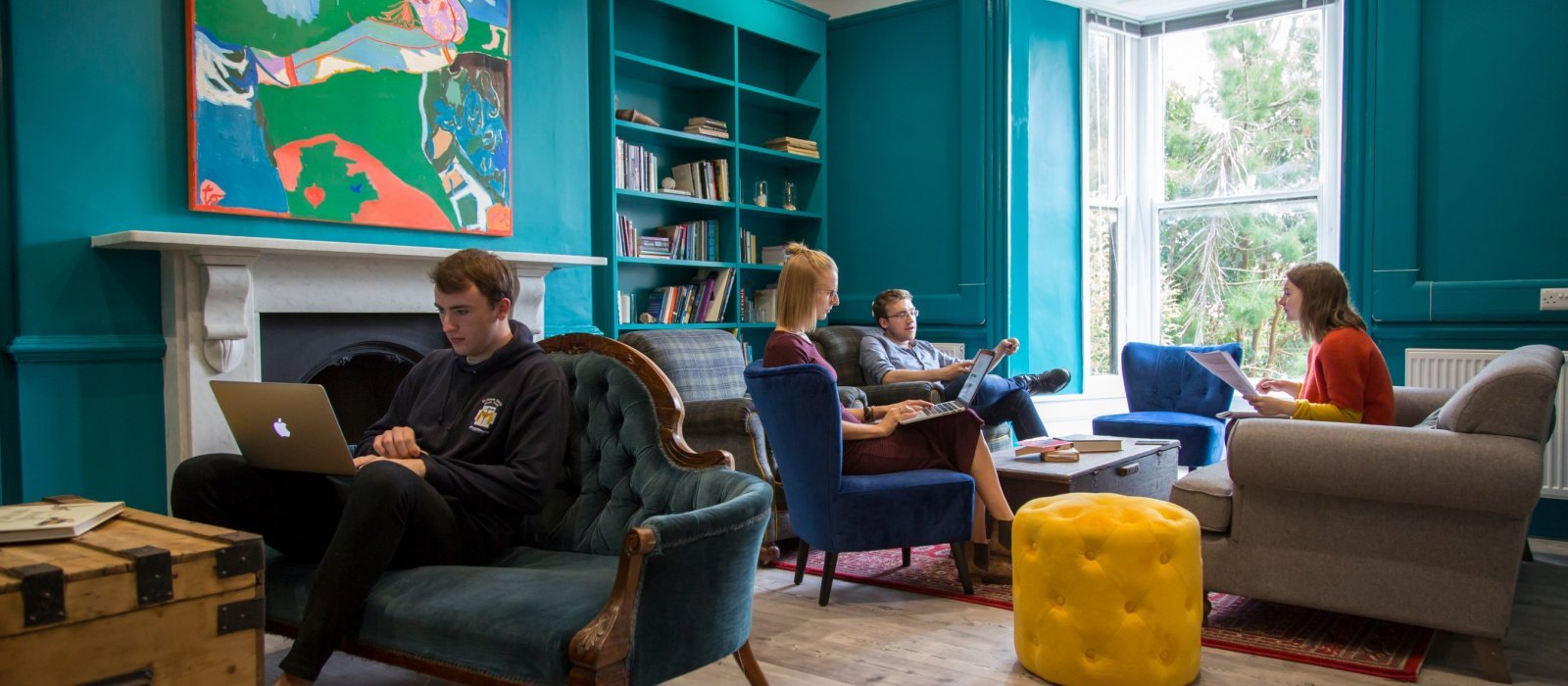
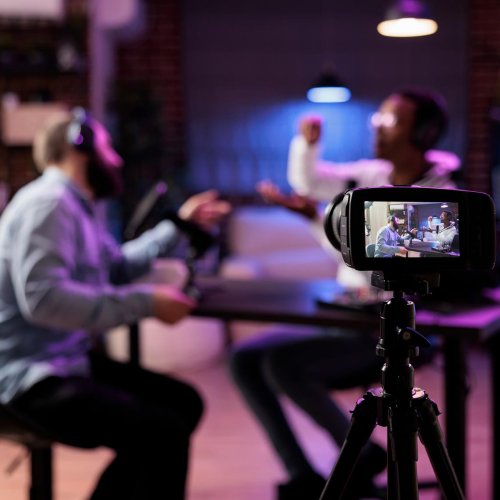
Discover the differences between our creative content, marketing and media courses
If you’re an aspiring storyteller with a keen interest in digital platforms, then you may be thinking about the different ways to forge a career in the fast-paced media industry. Here at Falmouth, our multidisciplinary School of Communication offers a variety of specialist degrees across media, content creation, marketing and journalism – all centred around the craft of impactful digital storytelling.
Find out moreHow you’ll learn & be assessed
Through skills development workshops, masterclasses and interactive seminars, supported by keynote lectures, you'll develop briefing, concepting, strategy, research, idea development and planning skills. Mirroring industry, you'll then put these skills into practice as you work on real-world projects individually and in teams. Throughout your Media Production degree, you'll benefit from the course team's film, television, advertising and journalism connections.
At Falmouth, we use a 'digitally enhanced learning & teaching' approach. Your experience will always be predominantly in-person, including seminars, tutorials and studio teaching, with some, more targeted elements, being online either live (synchronous) or pre-recorded (asynchronous). You can read more here.
100% of your assessment will be coursework. There are no exams as part of this course.
Assessment methods
Assessments can take many forms, including:
- Practical projects
- Presentations
- Portfolios
- Short essays
- Integrated Foundation Year assessments are 100% coursework based
Mirroring the industry, we encourage self-evaluation at the end of each project and support this via personal development plans.
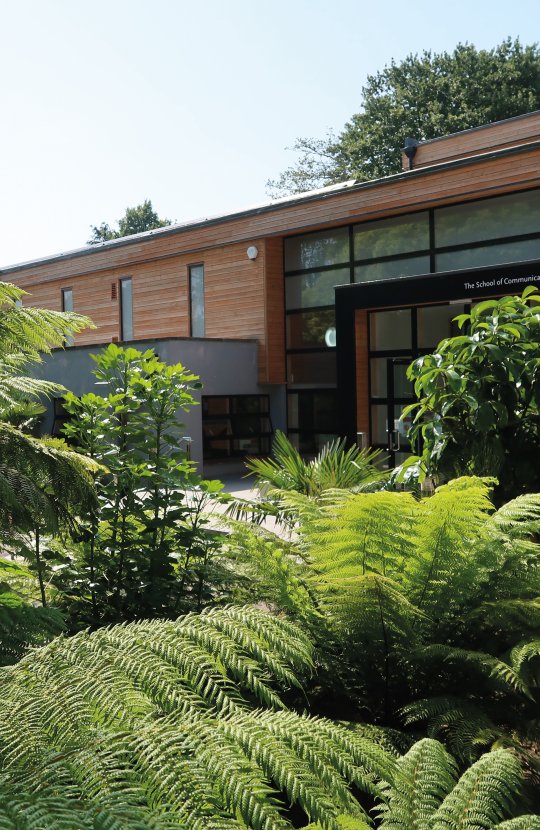
Virtual tour
Discover where you’ll spend your time as a student with our 360° tour, showcasing our facilities, accommodation, town and scenery.
Facilities
Media Production students will have access to professional facilities from across the School of Communication and the School of Film & Television. This includes:
- Dedicated studio space
- A well-equipped digital newsroom with news feed
- 25 workstations with professional scriptwriting and editing software
- The Soundhouse, our dedicated radio studio and podcast facility
- A wide range of DV cameras and audio recording devices
- Use of the School of Communication's dedicated study and meeting space, The Lighthouse
- Digital labs, lecture theatres and seminar rooms
- Library housing 140,000 books, 17,000 DVDs/videos and over 400 journal titles
- Four large production studios, including specialist green screen studio with access to motion capture kit and VR/AR/MR equipment
- Nine Mac Pro edit suites with Avid Media Composer, Adobe Creative Cloud Suite & Da Vinci Resolve.
- Two specialist grading suites featuring DaVinci Resolve and 4K preview screens.
- Two 28-seat 'Post Hubs' for post-production software training
- Three further post-production audio suites – all equipped with Pro Tools Ultimate.
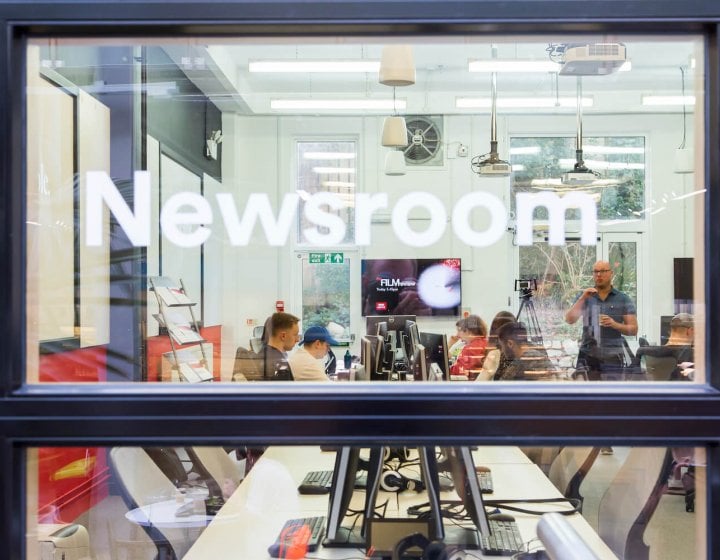
Media Equipment and Facilities
Our industry-level facilities offer everything you need to practice and produce animation, film, TV,...
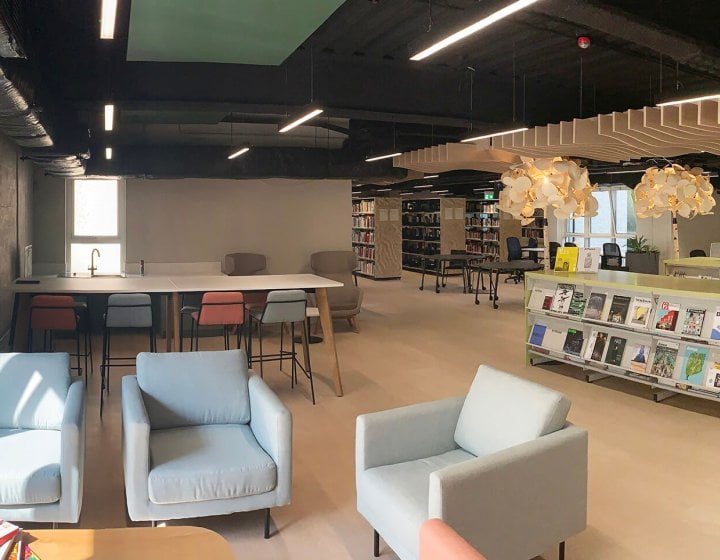
Library Facilities
Offering extensive collections, our two libraries provide a wealth of digital resources, magazines, ...

Sports Centre
Our Sports Centre, on Penryn Campus, includes a spacious gym with up to 90 of the latest, new statio...
Stories from our community
Explore student projects, graduate successes, staff news and industry insights
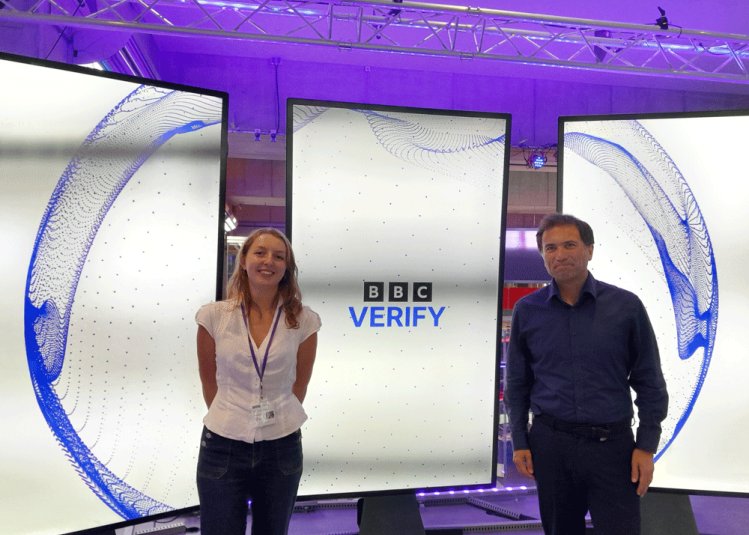
Journalism & Creative Writing charity partner to host media masterclass in Falmouth
09 February 2026
The John Schofield Trust, a national charity which partners with Falmouth University, provides mento...
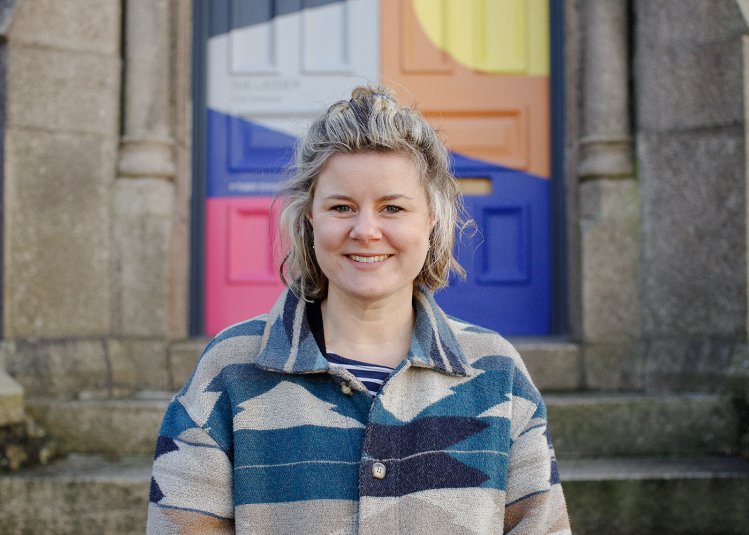
Falmouth graduate leads communications campaign for Redruth Town of Culture bid
02 February 2026
MA Communication Design graduate Bethia Naughton-Rumbo has spent fifteen years as a marketing consul...
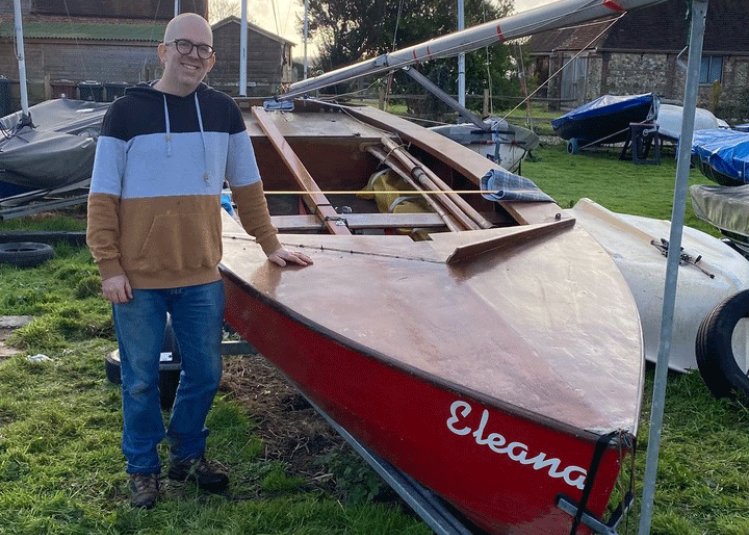
MA Professional Writing lecturer signs deal with Picador to publish new book set in Cornwall
28 January 2026
Just a few months after his short story was published in the 2025 edition of Best British Short Stor...
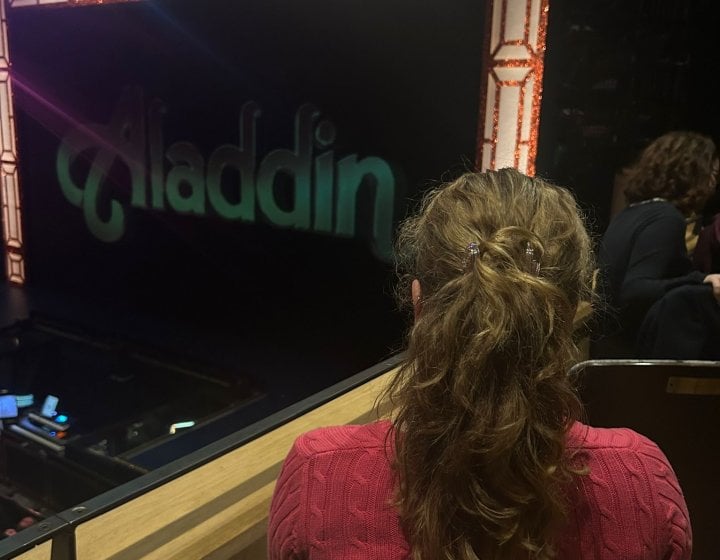
Why I chose to study Journalism & Creative Writing at Falmouth
07 January 2026
Journalism & Creative Writing student, Marla discusses why she chose to study at Falmouth.
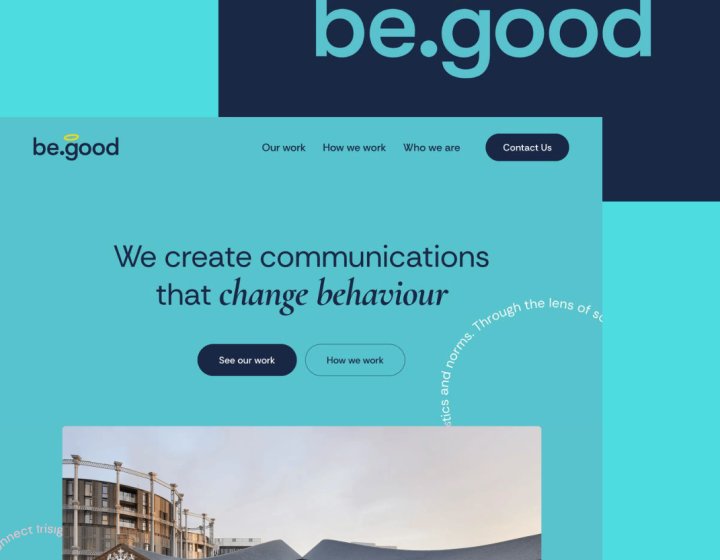
Be Good launches new identity and website
05 December 2025
Be Good, Falmouth University’s staff-led and student-driven creative agency, has launched a new we...
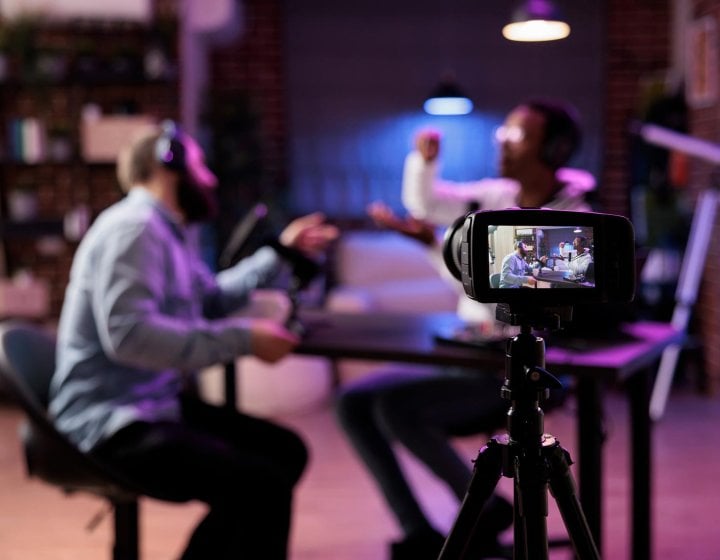
The differences between Falmouth’s creative content, marketing and media courses
27 November 2025
If you’re an aspiring storyteller with a keen interest in digital platforms, then you may be think...

Finding new direction with an online master’s in Graphic Design
26 November 2025
After almost twenty years working across freelance, agency and in-house roles, Filip Korić decided ...
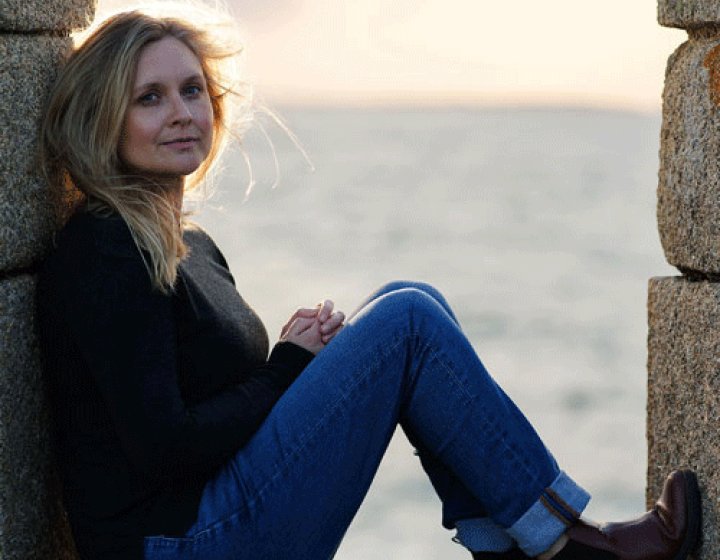
Creative Writing alumna releases dark academia romantasy with HarperCollins UK
21 November 2025
The Ordeals, the latest novel by bestselling fantasy author and English & Creative Writing BA(Hons) ...

Creative Writing lecturer co-writes new horror film set in Cornwall
14 November 2025
Falmouth University’s Sound/Image Cinema Lab (S/ICL) and Creative Writing BA(Hons) lecturer, Craig...
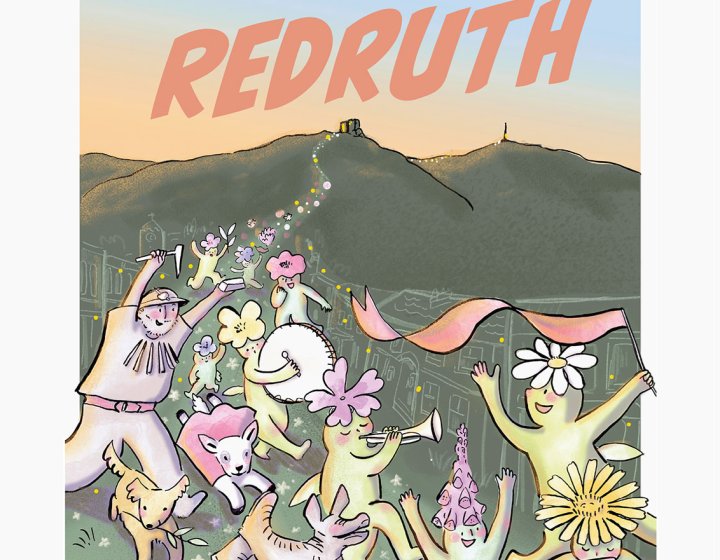
Students collaborate on Made in Redruth newspaper
13 November 2025
Falmouth students across three courses have worked together to write and illustrate ‘Made in Redru...

Meet the award-winning travel writer making a career of documenting his experiences
11 November 2025
“I wouldn’t have landed this job or won my award without the Journalism MA”, says Falmouth gra...
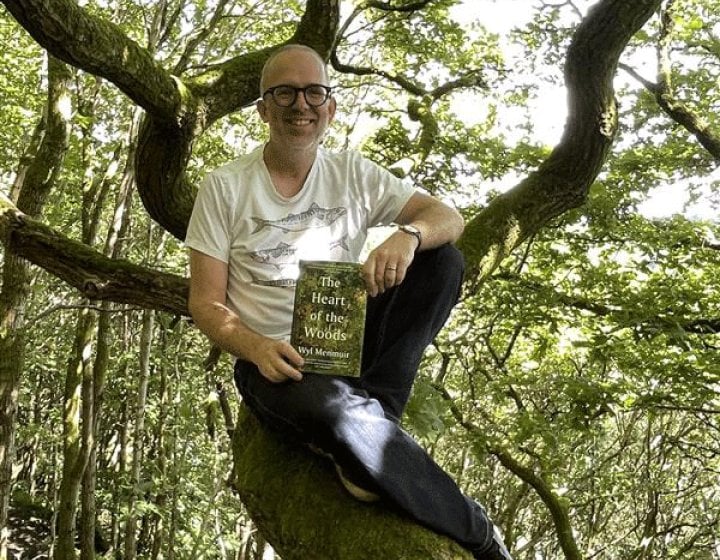
Professional Writing lecturer on his award-winning novels and short stories
24 October 2025
Falmouth’s award-winning, Man-Booker nominated Professional Writing BA lecturer, Wyl Menmuir, has ...
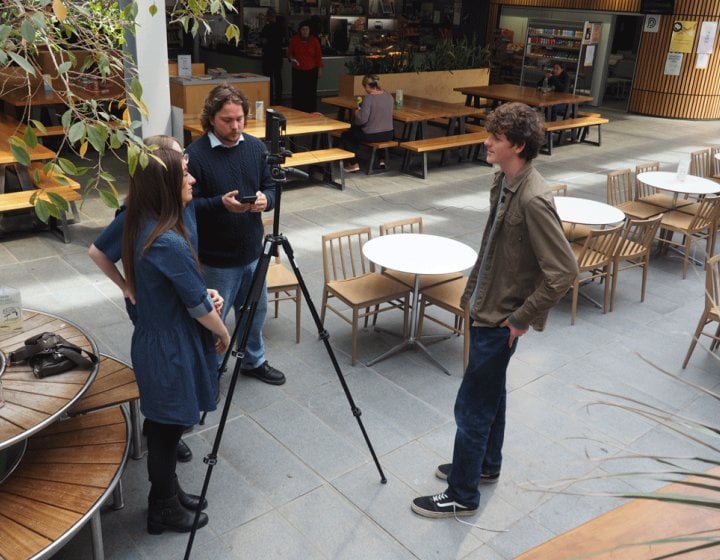
Journalism students and lecturers host school pupil journalism event with local MP
07 October 2025
Falmouth University’s journalism newsroom was buzzing last month as local school students grilled ...
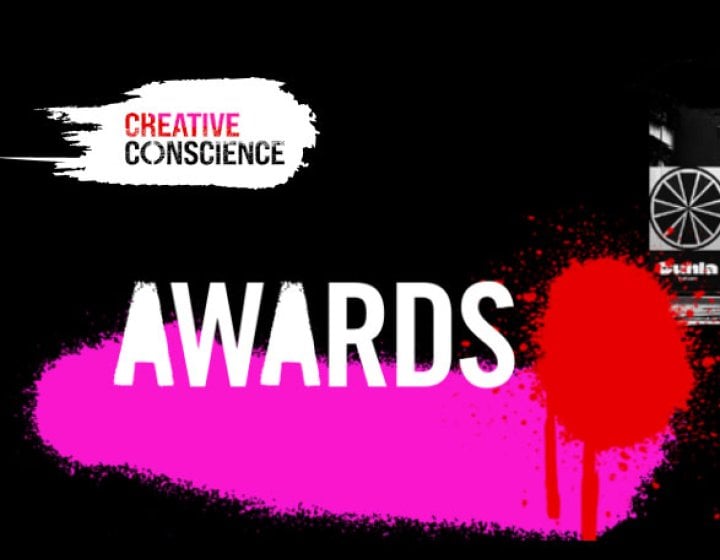
Students win big at Creative Conscience Awards 2025
07 October 2025
Eight students have been awarded the top awards at this year’s Creative Conscience Awards, with th...

Comedy Writing graduate’s script picked up by prime-time production company
23 September 2025
When writer Andy Thompson joined Falmouth’s online Comedy Writing master’s in 2020, he never exp...
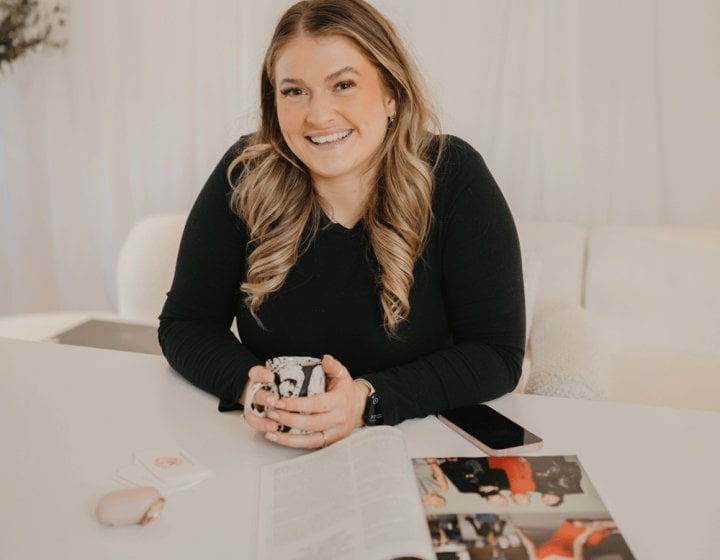
From marketing student to business owner: Meet Maeve Jarret
15 September 2025
After building in-demand skills in social media marketing, SEO practices, data analytics and copywri...

“AI makes the value of human storytelling clearer than ever”: Falmouth online tutor on embracing our differences
02 September 2025
With a rich and varied educational and industry-facing background, creative Elizabeth Gleave brings ...
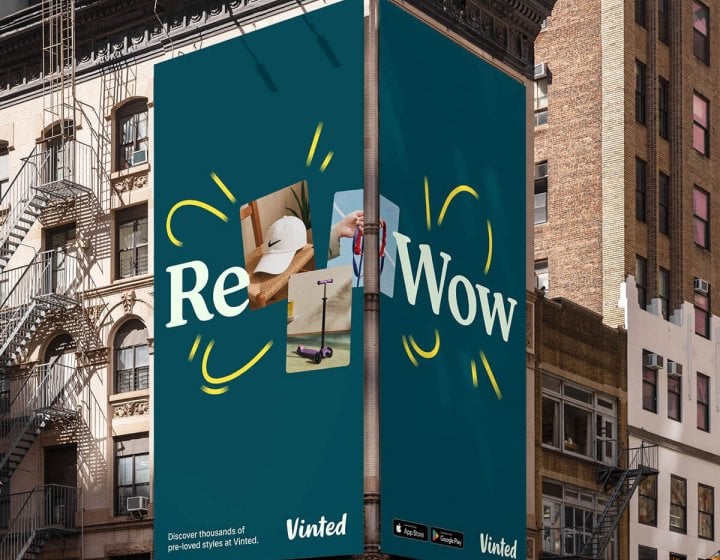
Studio Kiln: the Falmouth alumni refreshing Vinted’s global identity
20 August 2025
Nathan Smith and Charlie Hocking are the creative minds behind Studio Kiln, a design studio in Penry...
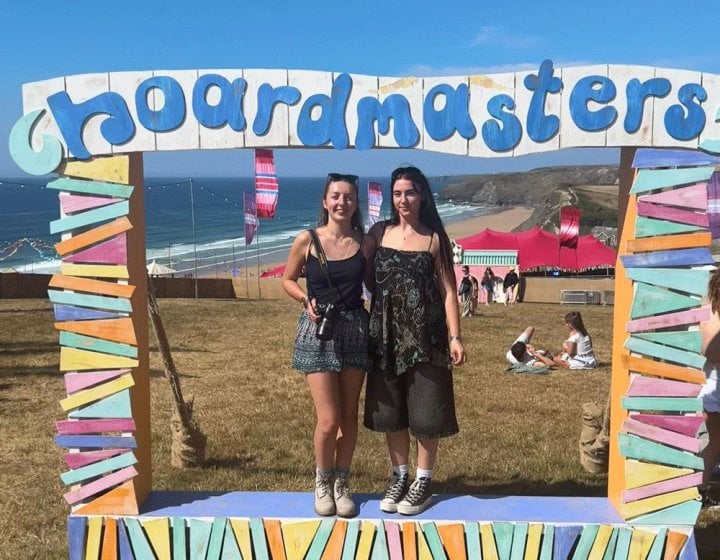
Journalism students step into industry roles at this year’s Boardmasters festival
18 August 2025
Two of Falmouth’s Journalism & Creative Writing BA students got the chance to report live updates ...
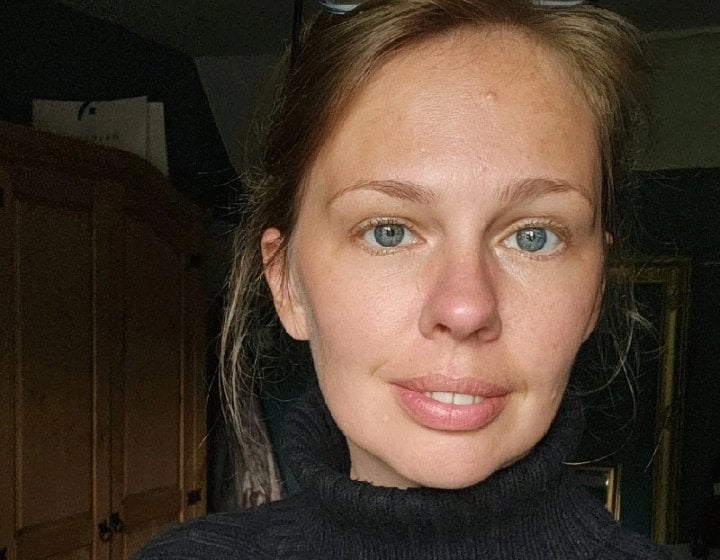
Falmouth alumna becomes a delegate of Edinburgh TV Festival’s The Network
06 August 2025
For Helen Tompson, the decision to enrol on Falmouth’s Writing for Script and Screen MA (Online) c...
Staff
You'll learn from practicing filmmakers, journalists, copywriters, marketers and advertising professionals with a wealth of knowledge, experiences and industry contacts between them.
Some members of staff only teach on specific modules, and your course might not feature every staff member who teaches on the course.
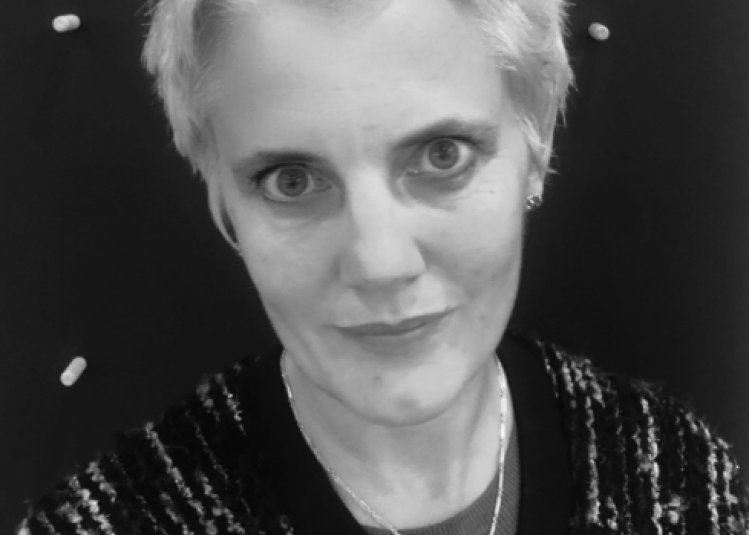
Lucy Cokes
Senior Lecturer, Creative Advertising
Lucy is a Senior Lecturer at Falmouth University, School of Communications. She has been working in ...
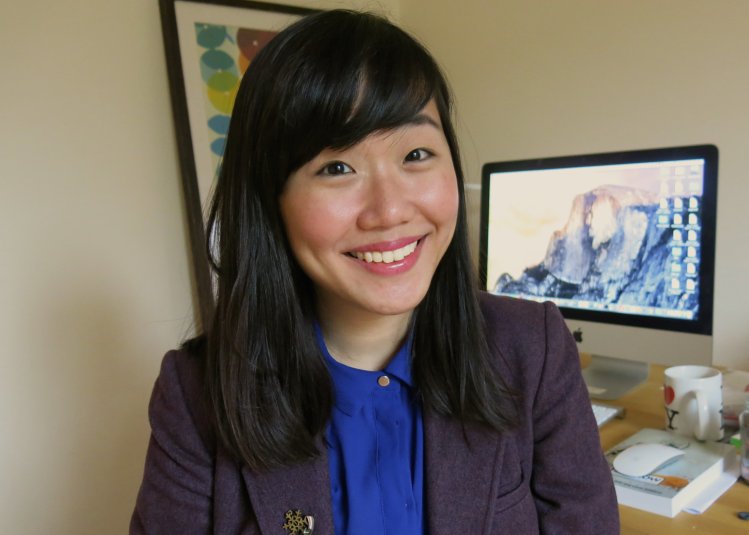
Dr Cui Su
Head of Advertising
After her boss at Young & Rubicam told her 'you're the best account handler I've ever had but go...
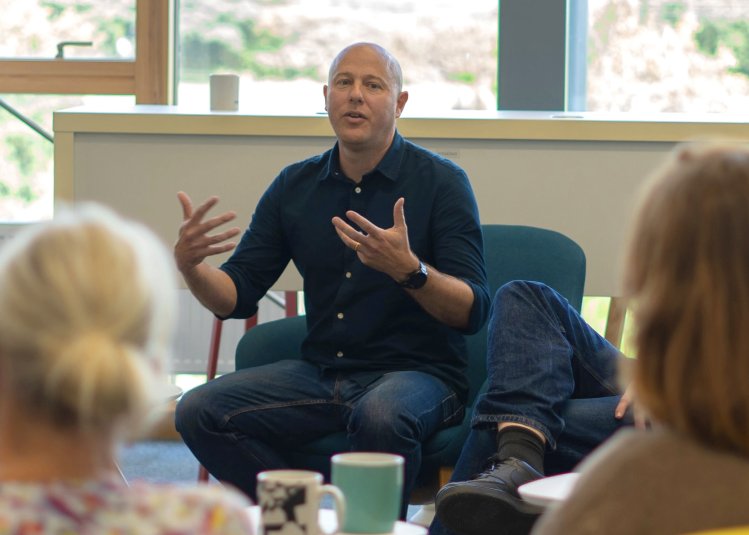
Dr James Branch
Senior Lecturer, Design Strategy
James is a lecturer and researcher specialising in design education. He holds a doctorate in User Ex...
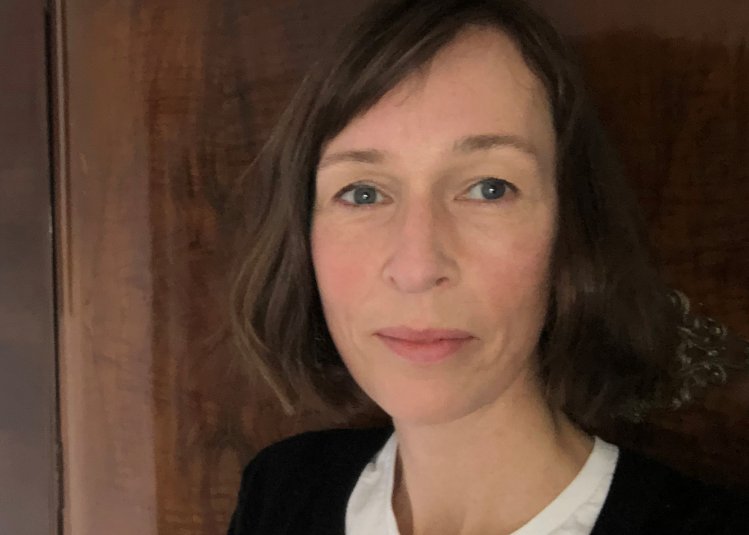
Dr Abigail Wincott
Associate Professor of Audio Journalism
Abigail Wincott is Leverhulme International Fellow at l'Université Paul-Valéry Montpellier, workin...
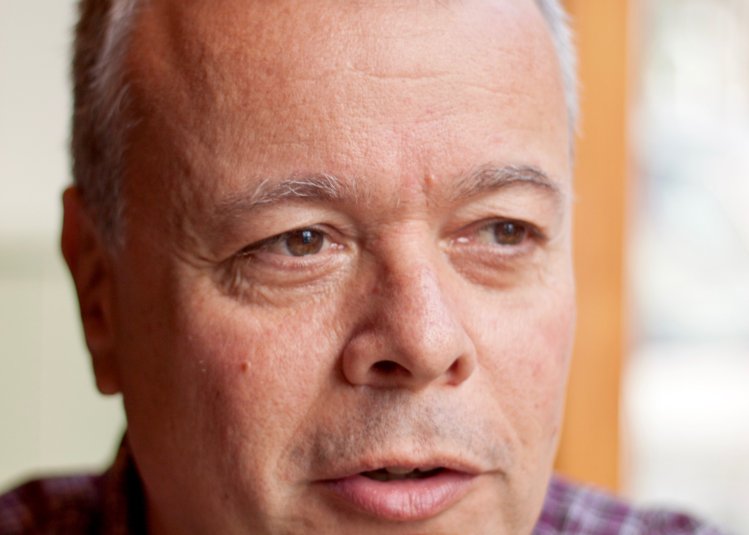
Kevin Bishop
Lecturer, Multimedia Journalism
Kevin Bishop is an broadcast news producer with over 30 years experience in newsgathering. Beginning...

Andy Chatfield
Senior Lecturer in Journalism
Andy studied History at Cambridge University before training as a journalist. He is a former deputy ...
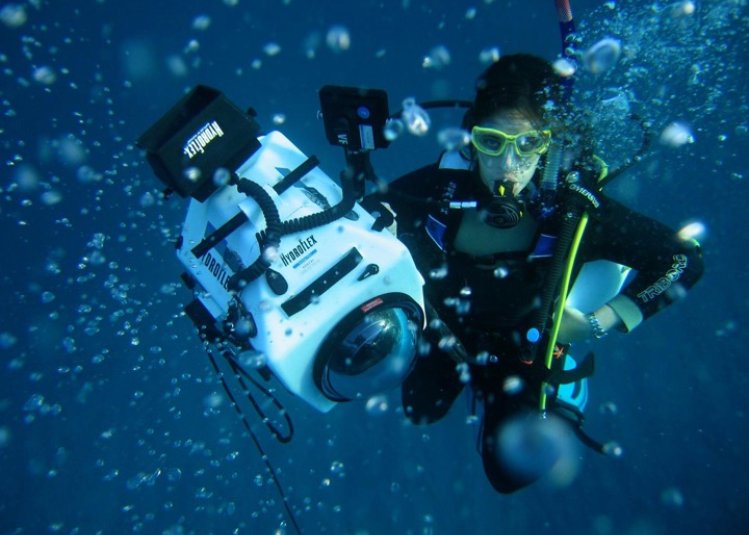
Faye
Course Leader, BA Television and Film Production
Faye is the Television and Film Production Course Leader at the School of Film & Television, hav...
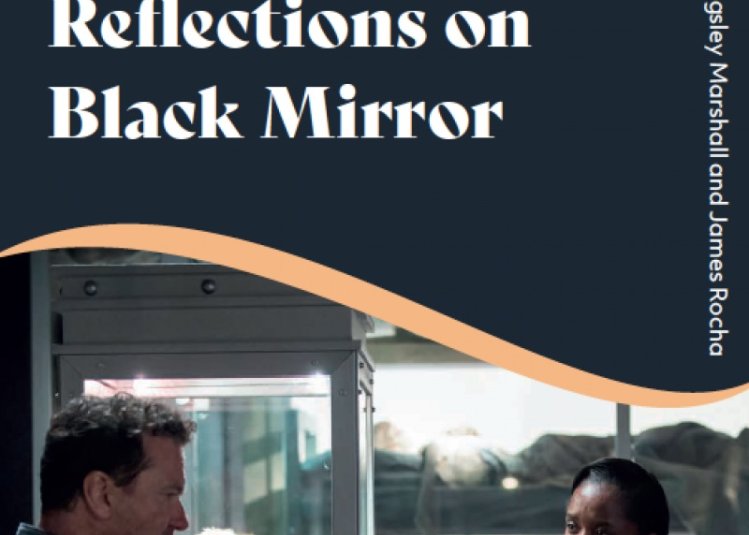
Dr Kingsley Marshall
Head of Film & Television
Dr Kingsley Marshall is Head of the CILECT and ScreenSkills accredited School of Film and Television...
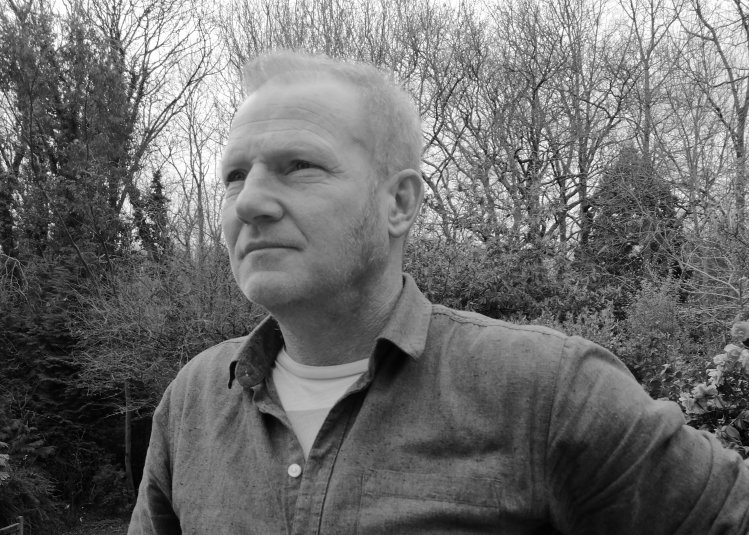
Steve Bough
Lecturer, Multimedia Journalism
Steve has enjoyed a successful 25 year career in the magazine industry with experience writing and e...
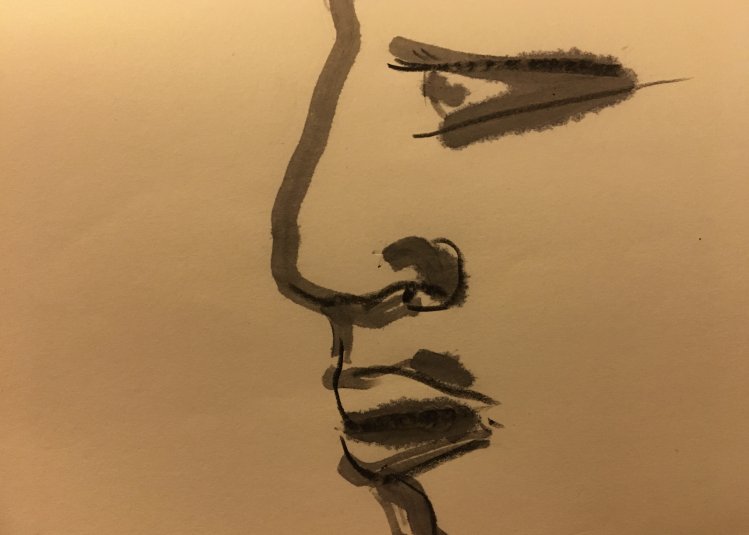
Caroline Deeds
Lecturer in Documentary and Factual Television
Caroline has a background as a fine artist. She studied at Glasgow School of Art and then Centr...
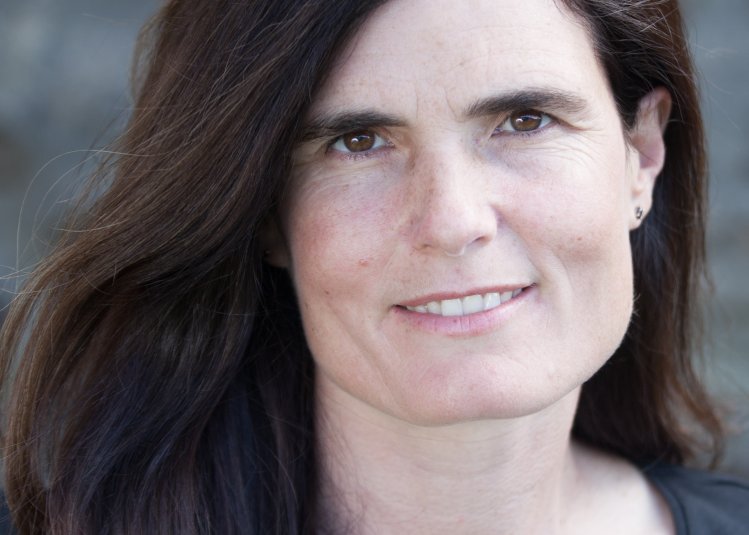
Charlie Fripp
Senior Lecturer, Television
Charlie is a Senior Lecturer at the School of Film and Television. Charlie is a former BBC journalis...
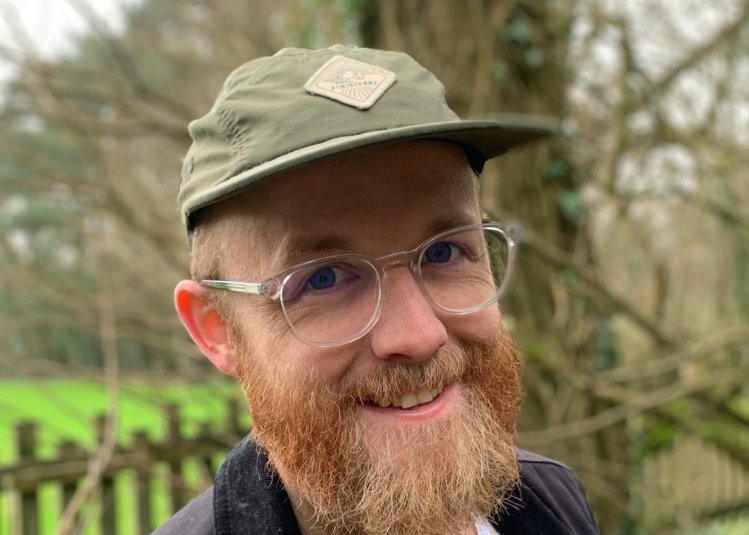
Joel Ferguson
Course Leader, Creative Advertising
After studying multimedia design and branding, Joel began his career by starting the agency, OTA Dur...

Got a question about this course?
If you want to know more about the course structure, our application requirements or what our graduates have gone on to achieve, our friendly course team is here to help.
Chat to JamesCareers
Media Production graduates could go on to work across a range of sectors in a variety of roles, including:
- Analyst
- Media planner
- Marketing and content strategist
- Public relations executive
- Social media producer
- Digital content creator
- Documentary maker
- Journalist
- Copywriter
- Strategic planner
- Accounts executive
- Assistant producer
- Production coordinator
- Production assistant
- Project manager
- Videographer/camera operator
- Podcast producer
- Broadcast/digital reporter or editor
- Media planner
Studying a degree in Communication, Media or Writing is more than just crafting the perfect poem or headline; it teaches you to see the world differently.
How to apply
Ready to apply for 2026?
You can apply for our undergraduate degrees via UCAS. You'll need our university UCAS code (F33) as well as your course code (which you'll find on your course page) for your application.
Applying as an international student?
There are a number of different ways to apply to study at Falmouth as an international student. Find out how you can become part of our creative community.
| Course route | UCAS code |
|---|---|
| Media Production BA(Hons) three year degree | P31A |
| Media Production BA(Hons) with Integrated Foundation Year | FY36 |
| Media Production BA(Hons) with professional placement | PY51 |

Application advice & interview information
Go to ToolkitFor starting your studies in 2026
UK applications: 14 January 2026 (for equal consideration)
Applications after the 14 January will be considered on a first-come, first-served as long as there are places available. Apply for this course now.
For starting your studies in 2027
UK applications: 13 January 2027 (for equal consideration)
International fee payers
International fee payers can apply throughout the year. But we recommend applying as early as possible, to make time for visa and travel arrangements.
We consider all applications on their own individual merit and potential.
Our diverse community is creative, innovative and entrepreneurial. We recognise that these qualities aren’t always shown in academic grades alone. That’s why, while many of our applicants achieve high academic grades, we also welcome those who can demonstrate their potential through an exceptional portfolio or performance.
We welcome applications from all subject backgrounds, whether you’ve specialised in STEM, the arts or humanities. Find out more about our Entry Requirements here.
Course routes & entry requirements
BA/BSc(Hons) three year degree: minimum 64 UCAS Tariff points
BA/BSc(Hons) four year degree with professional placement: minimum 64 UCAS Tariff points
BA/BSc(Hons) four year degree with Integrated Foundation Year: minimum 32 UCAS Tariff points
At Falmouth, we'll consider the equivalency of your specific qualifications against our entry requirements and support you through your application journey.
View our International Entry Requirements
Language requirements
For applicants whose first language is English we require you to have or be working towards GCSE English Language Grade 4 (C), or equivalent.
If English is not your first language you will need to meet the same standard which is equivalent to the IELTS Academic 6.0 overall score, with at least 5.5 in Reading, Writing, Speaking and Listening. We accept a range of in country equivalencies and approved tests.
If you need a student visa to study in the UK, you may need to take a recognised language test. You can read our English Language Requirements for more information.
What we're looking for
Media-savvy students who love to tell stories and be creative, with an ambition to produce content for commercial or editorial purposes that really makes a splash.
Fees, costs & funding
Tuition fees
| Annual tuition fee | Student |
|---|---|
| £9,790 per year | Full-time UK |
| £19,950 per year | Full-time EU/international |
| £1,955 per professional placement year | Full-time UK and EU/international |
| £9,790 per Integrated Foundation Year | Full-time UK |
| £19,950 per Integrated Foundation Year | Full-time EU/international |
| Annual tuition fee | Student |
|---|---|
| £9,535 per year | Full-time UK |
| £17,950 per year | Full-time EU/international |
| £1,905 per professional placement year | Full-time UK and EU/international |
| £9,535 per Integrated Foundation Year | Full-time UK |
| £17,950 per Integrated Foundation Year | Full-time EU/international |
Tuition fees for September 2027 will be confirmed in summer 2026.
Tuition fees are set annually and are subject to review each year. The University may therefore raise tuition fees in the second or subsequent years of a course, in line with inflation and/or the maximum permitted by law or Government policy. Students will be notified of any changes as soon as possible.
The figures above don't include accommodation and living costs
Typical course costs
- £600 - £2200 – Optional study trips and placements for the course duration
- £50-£100 – Recurring annual costs, such as Printing.
- Adobe Creative Cloud - You will need access to Adobe Creative Cloud. You may be eligible for discounted licenses through Adobe's education pricing and Falmouth University seeks to provide further discounts when possible. If any discounts are available, we will communicate these to you. For more information please visit Adobe Creative Cloud.
- Laptop/desktop computer £400 - £1500
- Smartphone
If you need to bring equipment or materials with you, these will be outlined in your Welcome Letter.
You will require a laptop for the course. Macs are preferred but a PC is fine. Costs range from about £400 to £1500. You will be using the Adobe Creative suite which as a Falmouth student, you will be able to access at a heavily discounted rate of £16.24 per month. You will also need a reliable broadband connection (if you are living in university accommodation you will have this).
Some printing costs will be needed when setting up your degree exhibitions in the final year. This is likely to be £50-£100 depending on the nature of your work.
Study trips
All first-year students have a scheduled three-day study trip to London during which you will visit relevant companies. Costs will vary depending on your accommodation and travel preferences. As a guide, expect to pay about £600 for the whole trip, including food and socialising.
In your final year, students may wish to participate in the three-day exhibition and festival event in London in July. Costs will vary depending on your accommodation and travel preferences. As a guide, expect to pay about £600 for the whole trip, including food and socialising.
In addition, there is likely to be the opportunity to travel with sister degrees to New York for a trip taking in media outlets and photographic agencies. This takes place around Easer. This is usually open to all years and costs around £1,000.
Additional typical course costs for Integrated Foundation Year pathway
- £250 for materials
- A laptop/desktop computer
- Adobe Creative Suite
To engage in the digital learning activity, although you will be able to access IT suites on campus, you will benefit from a laptop to access the platforms and tools we use. Depending on your subject, you may need a specific type of computer. If you're unsure about what you might need, please contact our course advisors.
Laptop (essential)
There is excellent access to computers at Falmouth, both PC and Mac, but you will also need your own laptop and a reliable internet connection to access the digital platforms we will be using for online activities as well as your independent and group-based work.
You can expect to pay £200-£300 to purchase a basic one for email and word processing. Video editing requires high powered computing which for most will be best achieved using our industry standard editing computers.
Smartphone
Even the most basic smartphone with a working camera will be sufficient for you to experiment with expressing yourself and developing your narrative storytelling to supplement the use of the bookable resources.
Hard Drive
Hard drives can be borrowed from our Stores however it’s often handy to have access to your own to store and backup your work. Reliability is critical so we would recommend brands such as G-Tech or Lacie with USB 3 connectivity and ideally a minimum disk speed of 7200rpm (approx. £100).
You will be expected to work in all sorts of locations and weather conditions. It is therefore highly recommended that you come fully prepared with the right sort of personal clothing to protect yourself from the elements and to meet risk assessment requirements. This will set you up well for industry work beyond graduation too.
This list is not exclusive, so please use it as a guide; you should be able to equip yourself for the outdoors for approximately £150 (some companies offer student discounts so be sure to check):
- Waterproof jacket
- Warm headgear
- Strong waterproof boots/shoes
- Gloves
- Waterproof trousers (working all day in wet jeans is particularly unpleasant!)
- Warm/thermal top (and bottoms for good measure!)
- Mobile phone for emergencies
Typical Costs
Typical course material costs:
- £150 - Recurring annual costs may include printing and stationary.
Study trips:
There are several IFY field trips, and you will need to allow for some costs for student contributions towards coach hire and exhibition entry. Total annual cost of day trips approximately £60.
If you want to attend the planned IFY week-long residential trip to London in the Spring of 2026 then you will need to plan for a £100 deposit payment shortly after arriving on the course, to secure a place, and to budget for a total trip cost of approx. £400 - to be paid in instalments.
Funding
For information about funding available, please visit our student funding pages.
Ask a student
What better way to find out about life at Falmouth University than by asking our current students?
From course details and academic support, to the social scene and settling in, our students are ready and available to answer any questions you might have. Simply set up your account, send them a question and they'll get back to you within 24 hours.
Similar courses
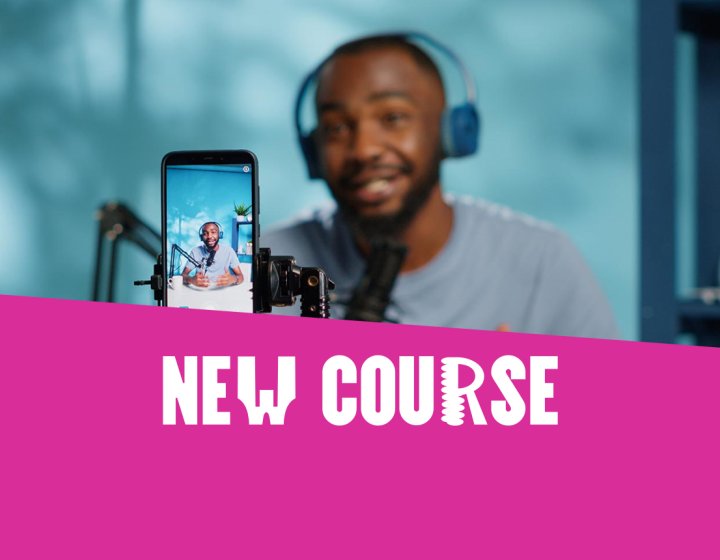
Content Creation BA(Hons)
Develop your creative, technical and analytical skills, so you can produce compelling content that c...

Business & Marketing BSc(Hons) (Online)
Become a skilled, confident, ethical and future-ready business and marketing professional with this ...
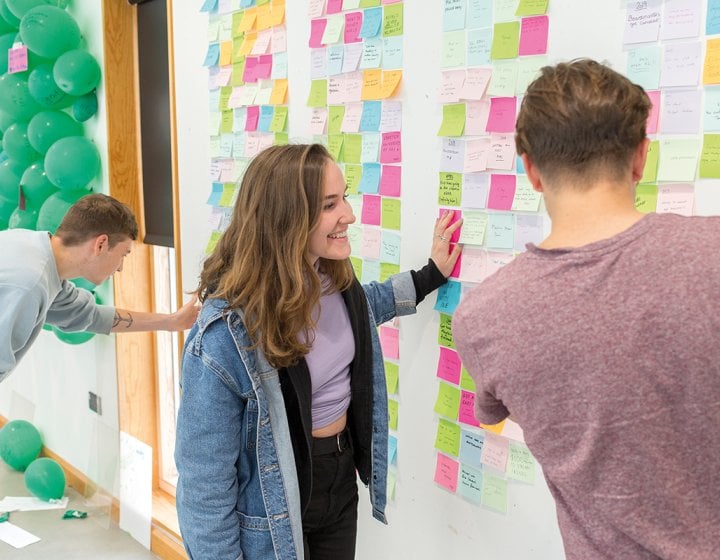
Marketing Communications BA(Hons)
Drive your ideas forward and engage with creative marketing practice on this Chartered Institute of ...

Work by Hannah Mittelstaedt
Commercial Photography BA(Hons)
From creating photographs and films for high-end advertising and marketing campaigns to producing vi...
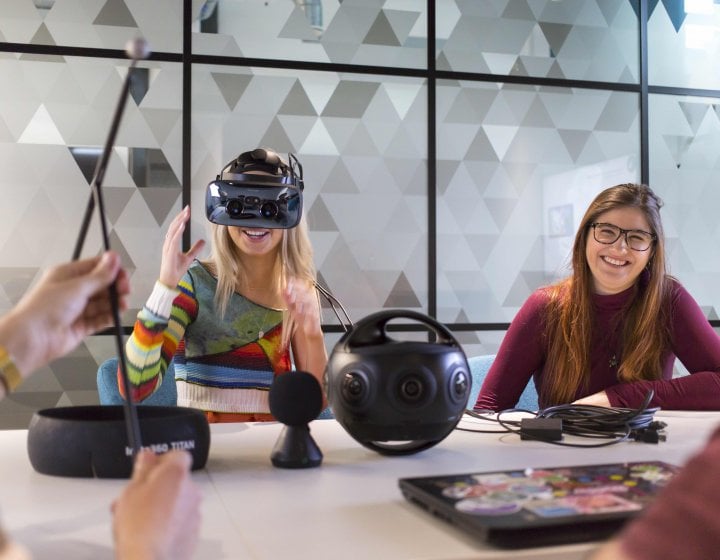
Business & Digital Marketing BSc(Hons)
Prepare yourself for a career in the fast-paced and ever-evolving world of business and digital mark...

Fashion Marketing BA(Hons)
Blend your flair for communication and eye for fashion into a successful career as a fashion markete...
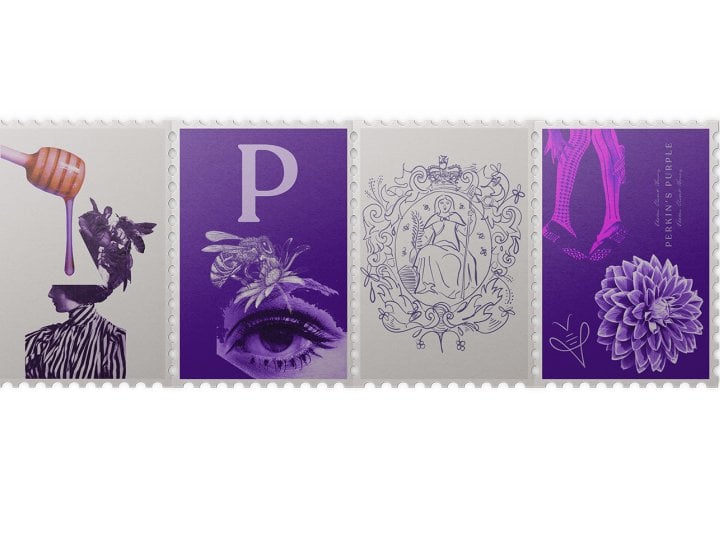
Graphic Design BA(Hons)
Graphic Design is one of the most versatile visual disciplines, embracing words and pictures, form a...
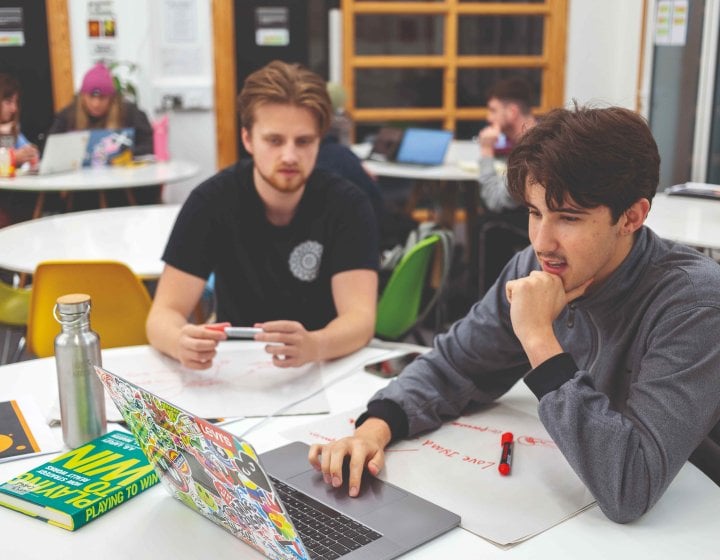
Creative Advertising BA(Hons)
Turn your ideas into powerful advertising campaigns with impact.
Open Days and events
From visiting campus to online application advice, get all the information you need about joining our creative community.
Find an event
